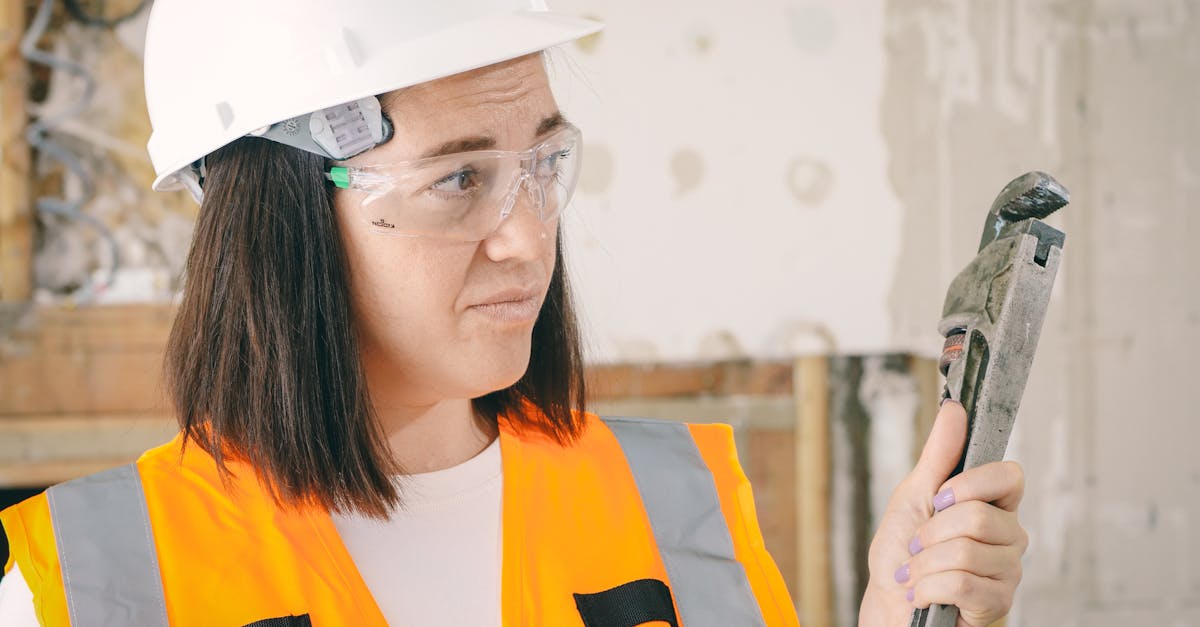
Table Of Contents
Choosing the Right Energy Efficient Water Heater
Selecting an energy-efficient water heater involves evaluating various types available in the market. Considerations such as the size of your household, your hot water usage, and the local climate can significantly affect your choice. Electric, gas, and solar options each have distinct advantages. Each type of heater varies in efficiency ratings, which inform potential savings on your energy bills. Researching brands and models with high energy star ratings can ensure that you invest in a system that meets your needs adequately.
Water heater installation and repair are crucial aspects that should not be overlooked when choosing a new unit. Professional installation can maximise the efficiency of your water heater, ensuring it operates optimally from day one. Additionally, maintaining your water heater regularly can prolong its lifespan and maintain its energy efficiency. Make sure to consult with qualified technicians who can provide guidance tailored to your specific requirements.
Factors to Consider for Your Home
When selecting the right energy-efficient water heater for your home, it's essential to assess the size and hot water demand of your household. An appropriately sized unit ensures that you have enough hot water while also maximising efficiency. Larger units might lead to wasted energy, especially if they exceed your family's requirements. Evaluating your daily usage patterns can provide valuable insights into the most suitable capacity for your needs.
Additionally, consider the various types of water heaters available, such as tankless, solar, or heat pump systems. Each option offers distinct benefits and efficiency ratings. It’s crucial to factor in the installation costs and the potential need for water heater installation and repair in your decision-making process. Choosing a model tailored to your specific circumstances will lead to more reliable performance and greater energy savings over time.
Common Misconceptions About Energy Efficiency Ratings
Many homeowners hold misconceptions about energy efficiency ratings, primarily believing that higher ratings automatically guarantee lower energy bills. While efficiency ratings do provide useful insights into a water heater's potential performance, they do not account for variations in usage habits or local energy costs. Understanding that individual consumption patterns can significantly affect overall expenses is essential. Additionally, not all energy-efficient models perform equally in every situation, as factors like the size and type of the unit play a crucial role in its effectiveness.
Another common myth is that energy-efficient water heaters require extensive modifications during installation or after purchase. In reality, many newer, energy-efficient models are designed to fit standard spaces and do not necessitate significant changes or upgrades in plumbing or electrical systems. Homeowners may also fear that opting for more efficient options will lead to complex water heater installation and repair processes. However, with the growing availability of these models, professionals trained in energy-efficient practices can typically handle installations with the same level of expertise as traditional heaters.
Dispelling Myths Surrounding Water Heaters
Many homeowners hold misconceptions about the efficiency of water heaters, believing that higher initial costs are not worth the supposed savings. Some think that conventional models perform similarly to high-efficiency units once operational expenses are considered. However, energy-efficient water heaters can significantly reduce energy consumption over time, translating into lower utility bills. The long-term benefits often outweigh the immediate financial outlay, making the choice clear for many households.
Another common myth is that annual maintenance for energy-efficient models is more complex and costly. While regular upkeep is necessary for all appliances, the process for efficient water heaters is typically straightforward. Understanding this can alleviate concerns regarding water heater installation and repair. By choosing reliable models and scheduling maintenance appropriately, homeowners can enjoy the advantages of both efficiency and longevity.
The Impact of Energy Efficiency on Utility Bills
Energy efficiency plays a significant role in influencing utility bills, particularly regarding water heaters. Efficient systems consume less energy to heat water, which directly correlates with reduced electricity or gas usage. By selecting a water heater with a high energy efficiency rating, homeowners can expect noticeable savings over time. The initial investment in an energy-efficient model can be offset by lower monthly bills, making it a financially savvy choice in the long run.
In addition, regular water heater installation and repair can further enhance efficiency. Proper maintenance ensures that the systems operate optimally, preventing energy wastage due to issues such as sediment buildup or insulation problems. By prioritising efficiency in both the selection and upkeep of water heaters, homeowners can achieve better overall performance while enjoying substantial cost reductions on their utility bills.
Understanding LongTerm Savings
Investing in an energy-efficient water heater can lead to significant long-term savings. Although the initial purchase price may be higher than conventional models, the reduction in energy consumption pays off over time. Homeowners often see lower utility bills as a result of decreased energy usage, which can effectively offset the higher upfront costs. Furthermore, energy-efficient systems typically have longer lifespans, reducing the need for frequent replacements.
Proper water heater installation and repair are crucial in maximising these savings. A professionally installed unit operates more efficiently, ensuring optimal performance from day one. Regular maintenance can also extend the lifespan of the water heater, preventing costly repairs down the line. Emphasising the importance of professional service helps homeowners maintain their systems in top condition, further enhancing long-term financial benefits.
FAQS
What does energy efficiency rating mean for water heaters?
Energy efficiency ratings indicate how effectively a water heater converts energy into hot water. Higher ratings typically mean better efficiency and lower energy consumption.
How can I choose the right energy-efficient water heater for my home?
Consider factors such as the size of your household, hot water usage patterns, available fuel types, and specific energy efficiency ratings to make the best choice for your needs.
Are there any common misconceptions about energy efficiency ratings?
Yes, many people believe that all high-efficiency models are expensive or that older models can't be efficient. In reality, there are various options available to suit different budgets and needs.
How can an energy-efficient water heater impact my utility bills?
An energy-efficient water heater can significantly reduce your utility bills by consuming less energy to heat water, leading to long-term cost savings over time.
What should I look for in the energy efficiency ratings when purchasing a water heater?
Look for the star rating on the product label, along with the Energy Factor (EF) or the energy consumption figures, as these indicators help you assess the overall efficiency of the water heater.





























